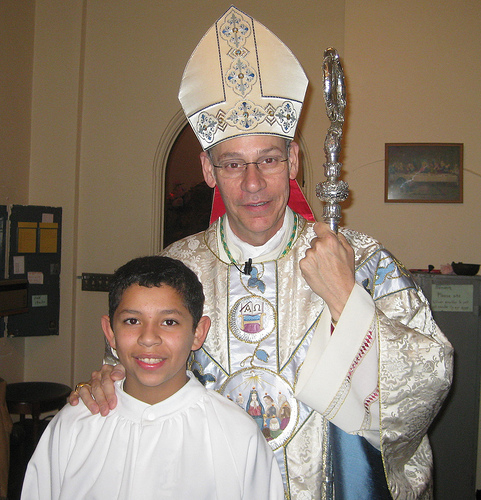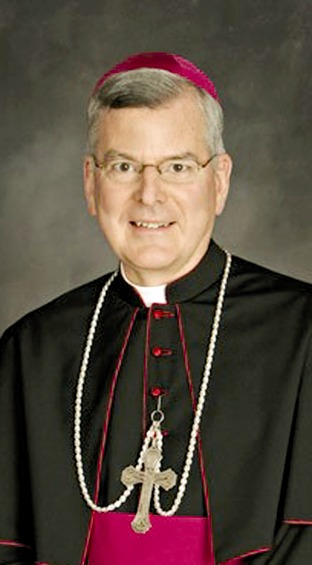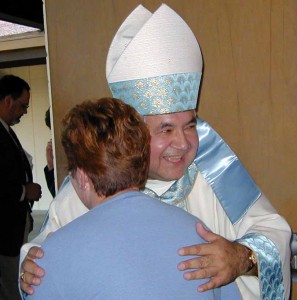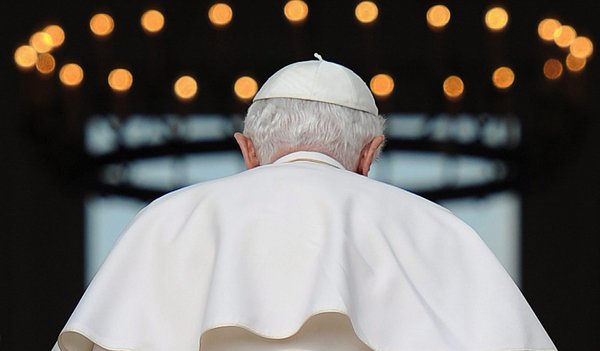The Kansas City-St. Joseph Diocese spent more than $1 million during four months of 2011 in connection with priest sexual abuse cases, according to a diocesan report.
 The report shows a diocese insurance program incurred $631,553 in costs relating to clergy sexual abuse from July through October. It also paid $427,707 in connection with an independent investigation led by former U.S. Attorney Todd Graves at the request of the diocese.
The report shows a diocese insurance program incurred $631,553 in costs relating to clergy sexual abuse from July through October. It also paid $427,707 in connection with an independent investigation led by former U.S. Attorney Todd Graves at the request of the diocese.
No legal costs have been paid from that fund or any other diocesan fund for the defense of the Rev. Shawn Ratigan, a priest who was charged last year in state and federal courts with possession of child pornography, the report says. Ratigan’s arrest sparked a flood of lawsuits and resulted in an indictment against Bishop Robert Finn and the diocese on misdemeanor charges of failing to report suspicions of child sexual abuse.
The figures — the most detailed the diocese has provided on the costs related to priest sex abuse cases — were released in a five-page document that was published in The Catholic Key, the diocesan newspaper, and posted on the diocese website.
In a letter with the report, Finn called the document an overview of how the diocese has fulfilled the Charter for the Protection of Children and Young People, a groundbreaking document that U.S. bishops approved 10 years ago at the height of the church’s sex abuse scandal.
“We have taken many important steps to prevent abuse from happening in diocesan, parish or school settings,” Finn said.
But critics said it was unfortunate that the diocese has had to spend so much on sex abuse cases.
“It’s a shame that the diocese spent a million on this when they could’ve used it for the real purposes of the church,” said Patrick Wall of California, a canon lawyer and former Roman Catholic priest who has worked on behalf of clergy sexual abuse victims since 2002. “That’s a million dollars that couldn’t be used to help the widows and the orphans and the poor on the street.”
Church officials have said that the money doesn’t come directly from offerings.
Funding for the Diocesan Property and Casualty Insurance Program “comes from insurance premiums paid by parishes, schools, cemeteries, and Catholic Charities, as well as interest income on insurance reserves,” according to the report.
The insurance program is not funded by money paid by parishes to support diocesan ministries, offices and programs, nor is it funded by money given to the Bishop’s Annual Appeal, the report says. Money from the appeal goes toward paying for social and emergency services, parish-based ministry grants and educational programs.
But Nicholas Cafardi, a law professor at Duquesne University and former chairman of the U.S. Bishops’ National Review Board for the Protection of Children and Youth, said no matter how the funding is described, the money ultimately comes from parishioners.
“It’s simple logic, really,” Cafardi said. “Every penny the church has today has its origins in the charity of the faithful. They may have insurance policies, but the premiums to pay these insurance policies come from the collection plates.”
Rebecca Summers, spokeswoman for the diocese, said Friday that the report was issued because the diocese had received a number of questions about its safe environment programs and expenses.
“Our purpose in publishing this Special Report is to be responsive — in an open and transparent way — to our Catholic community and to those we serve,” Summers said. “We recognize that, through the stewardship of the people of this diocese, we can remain resolute in our commitment to the mission and ministry of the church.”
The report says the $631,000 paid from the diocesan insurance program in the four-month period last year includes $5,285 for counseling requested by victims or their family members and legal costs for defending the diocese, its employees and priests who are named in 24 pending lawsuits involving sexual abuse allegations from the 1960 through 1980s.
Of the money that went toward the Graves report, $77,432 was to the diocese’s legal counsel for file retrieval, document reviews and interviews conducted for the investigation.
The report also shows that the insurance program paid a total of $14.8 million on issues related to priest sex abuse allegations from July 1, 2002, through Oct. 31, 2011.
That includes a $10 million settlement paid to 47 victims or their family members in 2008 and $4.3 million in legal costs, the report says.
Money also went for safe environment training for adults and children and counseling for victims.
In his letter, Finn said that although the diocese has taken many steps to protect children from abuse, he knows the work will never be completed.
“Together — as bishop, clergy, religious, staff, volunteers and families — we must continue to do all within our power.”
Cafardi, who is a canon lawyer, said the diocese’s hefty expenses are understandable.
“Given the circumstances they find themselves in, I don’t think those are disproportional expenses, but the bigger issue is, wouldn’t they have been better off keeping the terms of the (U.S. Bishops’) charter and following their own internal policies and not finding themselves in the situation they’re in?” he said.
The Graves investigation, released in September, found that diocesan leaders failed to follow their own policies and procedures in responding to reports of child sexual abuse. It laid out a set of recommendations.
Graves said Friday that he hadn’t yet seen the diocese report. However, he said, “When we gave them our report, I believed that they were going to implement virtually everything in the report. And I have no reason to believe any different today.”
The diocese report describes a series of prevention measures that have been implemented to create a safe environment for children, including criminal background screening of clergy and employees, a three-hour training session called “Protecting God’s Children” and education programs for children and youth.
Last year, the diocese established a Department of Child and Youth Protection and hired an independent ombudsman to receive and investigate sexual abuse allegations. The ombudsman also is to report all allegations of sexual abuse of a minor to law enforcement.
According to the report, the earliest allegation of sexual abuse of a minor occurred in 1948 and was reported 60 years later. The diocese to date has received 108 reports of sexual abuse, the report says.
A total of 23 diocesan priests have been accused of sexual misconduct with minors, seven of whom were accused after they died. Of the remaining 16, the report says, four are in the process of being dismissed from the priesthood; six retired and were later barred from ministry; three have died since being accused; two are on administrative leave; and one has been dismissed from the priesthood.
The four priests who are in the process of being formally dismissed have been the subject of credible accusations, the report says. Included among the four is Ratigan, the only priest named in the report.
U.S. dioceses and religious orders have spent billions on priest sex abuse cases, according to the Center for Applied Research in the Apostolate at Georgetown University. In a report prepared for the U.S. Conference of Catholic Bishops, the organization said the costs associated with child sex abuse in 2010 was $123.7 million for dioceses and $25.9 million for religious orders.
Cafardi acknowledged that enormous amounts have been spent but said the focus shouldn’t be on the costs involved.
“The proper measure of the tragedy is not in the dollars that are paid,” he said. “The proper measure of the tragedy is in the lives that were ruined.”
Complete Article HERE!




